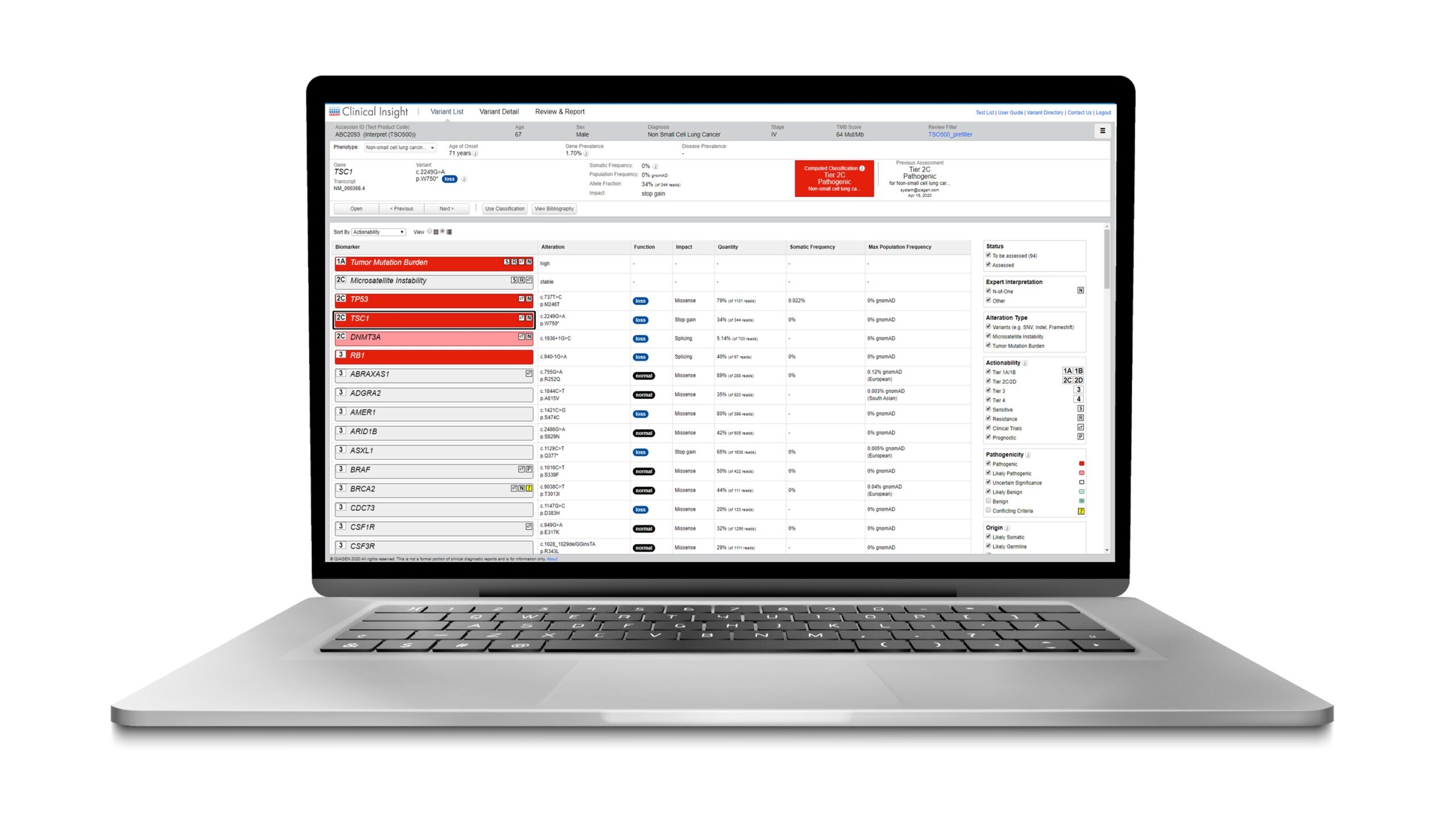


















QCI Interpret's latest software update comes with several new features, including a new workflow for comprehensive cancer panels and greater variant coverage for labs using the GRCh38 reference genome
We are pleased to announce that the Summer 2022 Release of QCI Interpret, QIAGEN’s decision support software platform for the annotation, classification, and reporting of actionable alterations from next-generation sequencing (NGS) data in clinical genomic laboratories, is now available. Expanding on the software’s current capabilities, the QCI Interpret Summer 2022 Release brings new workflows, variant content and functionality improvements.
QCI Interpret is a clinical decision support software platform for the annotation, classification, and reporting of actionable alterations from NGS data for oncology and hereditary disease applications. Using augmented molecular intelligence and expertly curated content from the QIAGEN Knowledge Base, QCI Interpret applies a rules-based approach to automatically compute pathogenicity classifications (Pathogenic to Benign) and actionability classifications (Tier 1 to 4) for each alteration according to professional guidelines from ACMG/AMP and AMP/ASCO/CAP, respectively.
Pathogenicity and actionability classifications in QCI Interpret are accompanied by clear visibility into the criteria and evidence supporting the classifications. This workflow starts with a variant call format (VCF) file, so it is compatible with the output from any NGS platform. The final report includes the alterations, interpretations, and references specified throughout the assessment process, which has customizable automation capabilities allowing for streamlined clinical decision support workflows.
Learn more about QCI Interpret for Oncology here.
Learn more about QCI Interpret for Hereditary Diseases here.